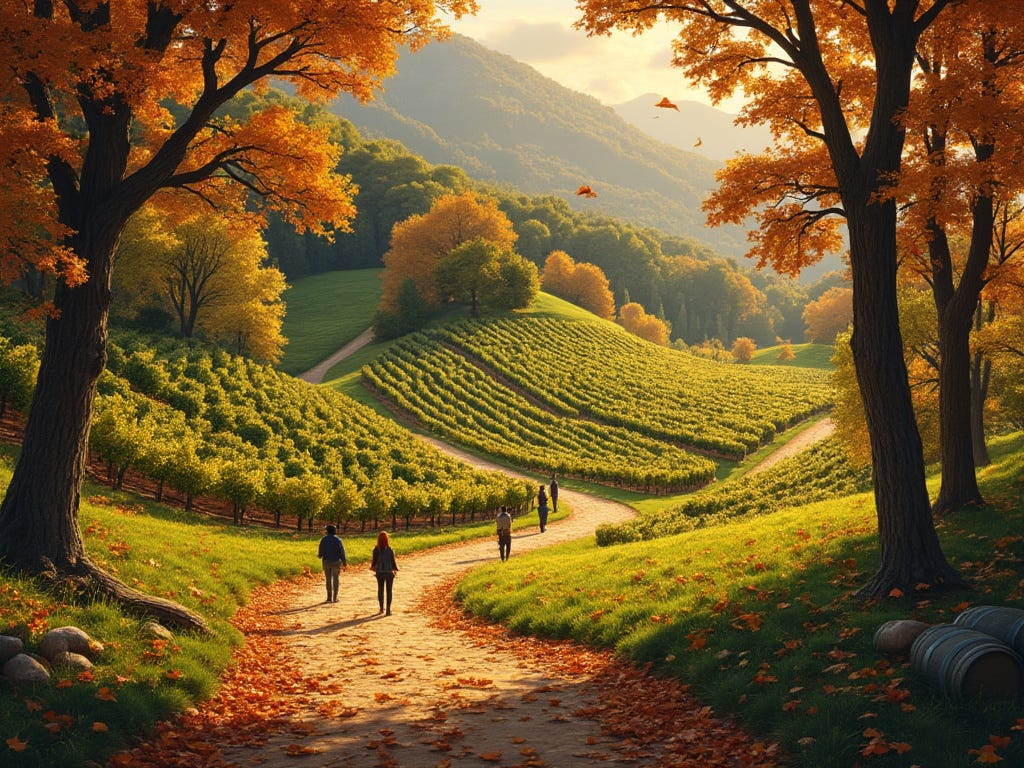Seasons of Change in Education
Why Growth Takes Time and Why Schools Need to Slow Down
It's autumn, the wind is starting to prickle, the leaves are slowly changing colors and the smells are notably new since the start of the semester. Students aren't the same people they were at the start of the year either. Or at least, they shouldn't be. Education, if done right, should transform. Not in some nebulous, inspiring way – I'm talking real change. Like a wine tasting that starts sharp and acidic, then blooms into depth and complexity over time, each sip offering more. That's what students need: the chance to evolve on the intellectual palate.
But instead, what do we give them? Overstuffed curricula, rushing to fit everything into neat little boxes for the sake of accreditation. We’re slamming them with concepts, cases, and more tests than a wine critic on a bender. No time for letting thoughts breathe, for curiosity to linger in the glass.
Here's the truth: schools are more concerned with ticking boxes than with cultivating thinkers. We need to dial back the relentless pace, drop the obsession with standardized learning objectives, and make room for students to breathe, reflect, and mature. Because growth doesn’t happen by force-feeding knowledge. It happens by letting ideas settle, mix, and change us. Just like a good vintage takes time, so does a good mind.
So what can we do? First, we need to carve out dedicated time for reflection— sessions where students can sit down with a skilled animator and without any pressure of grades, to discuss key concepts they've encountered and connect them to their own experiences. Ideally, this should be in a relaxed setting, like a circle discussion, where sharing ideas is more important than getting it 'right.' Second, we need to implement open-ended project-based learning—assignments that span several weeks, allowing students to explore topics of their choosing, draft, revise, and build something meaningful that ties into their passions and future aspirations. Finally, we must create structured opportunities for peer-to-peer discussions—think of bimonthly debates or thought-provoking roundtables that prompt students to challenge each other respectfully, offering fresh perspectives and deepening their understanding of complex ideas.
Growth flourishes in these reflective pauses, unhurried projects, and challenging dialogues—not from rushing to the next checkpoint. Just as autumn takes its time to turn leaves from green to gold, true learning needs its own season of change, its own deliberate pace.


